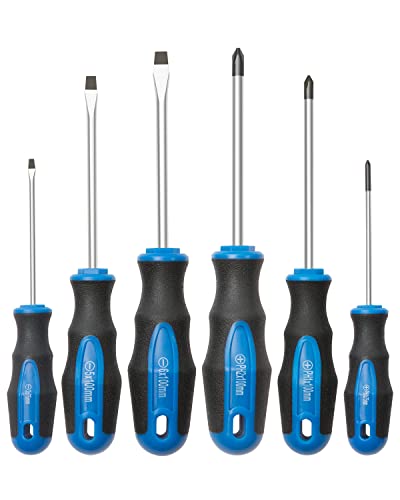The Importance of Choosing the Right Screws for Woodworking
When it comes to woodworking, choosing the right screws is crucial for ensuring the durability and quality of your projects. The wrong type of screws can weaken joints, cause splits in the wood, or even lead to the failure of your project. With so many options available, it can be overwhelming to know which screws are best for woodworking. In this article, we will discuss the best types of screws for woodworking and explain when and how to use them.
Wood Screws
Wood screws are specifically designed for use in woodworking projects. They have coarse threads that provide better holding power and prevent the screws from coming loose over time. These screws come in a variety of sizes and lengths, allowing you to choose the ones that are best suited for your specific project.
When using wood screws, it is important to pre-drill a pilot hole to prevent the wood from splitting. This is especially important when working with hardwoods or when driving the screws close to the edges of the wood. Using a countersink bit can also help create a clean, flush finish by allowing the screw head to sit below the surface of the wood.
Brass Screws
Brass screws are not only aesthetically pleasing, but they also have excellent corrosion resistance. This makes them a popular choice for outdoor woodworking projects, such as building fences or decking. Brass screws are also commonly used in furniture making, as they add a touch of elegance to the finished piece.
When using brass screws, it is important to note that they are softer than steel screws. This means that they can easily be stripped or damaged if too much force is applied. To prevent this, it is advisable to pre-drill pilot holes and use a manual screwdriver or low torque setting on a drill to drive the screws.
Pocket Hole Screws
Pocket hole screws are specifically designed for use with pocket hole joinery systems. These screws have a self-drilling tip and a flat-bottomed head that fits perfectly into the pocket holes. The self-drilling tip eliminates the need for pre-drilling pilot holes, making pocket hole joinery quick and easy.
When using pocket hole screws, it is important to choose the right length for your project. The length of the screw should be selected based on the thickness of the material being joined. Using a screw that is too long can cause the screw to come out the other side of the wood, while using a screw that is too short can result in a weak joint.
Particle Board Screws
Particle board screws are designed specifically for use with particle board and other similar engineered woods. These screws have coarse, sharp threads that provide excellent holding power in this type of material. They often have a flat-bottomed head or a countersunk head that allows the screw to sit flush with the surface of the particle board.
When using particle board screws, it is important to avoid over-tightening them, as the particle board can easily strip or split. It is also important to pre-drill pilot holes to prevent the material from splitting. Using a countersink bit can help create a neat and flush finish, especially when the screws are visible.
Drywall Screws
Drywall screws are not typically used for woodworking, but they can be a handy option for certain projects. These screws have a coarse thread and a sharp point, making them easy to drive into wood. They are commonly used in situations where appearance is not a concern, such as building workbenches or temporary structures.
When using drywall screws, it is important to note that they do not have as much holding power as wood screws or other specialized screws. Therefore, they should not be used in applications where strength and durability are essential. Drywall screws should also not be driven close to the edges of the wood, as they can cause splitting.
By choosing the right screws for your woodworking projects, you can ensure the longevity and quality of your creations. Whether you opt for wood screws, brass screws, pocket hole screws, particle board screws, or drywall screws, each type has its own unique advantages and applications. Consider the specific requirements of your project and choose the screws that will provide the best results. Remember to always follow best practices when using screws, such as pre-drilling pilot holes and using the appropriate torque settings on your drill, to avoid damaging the wood or compromising the integrity of your project.






